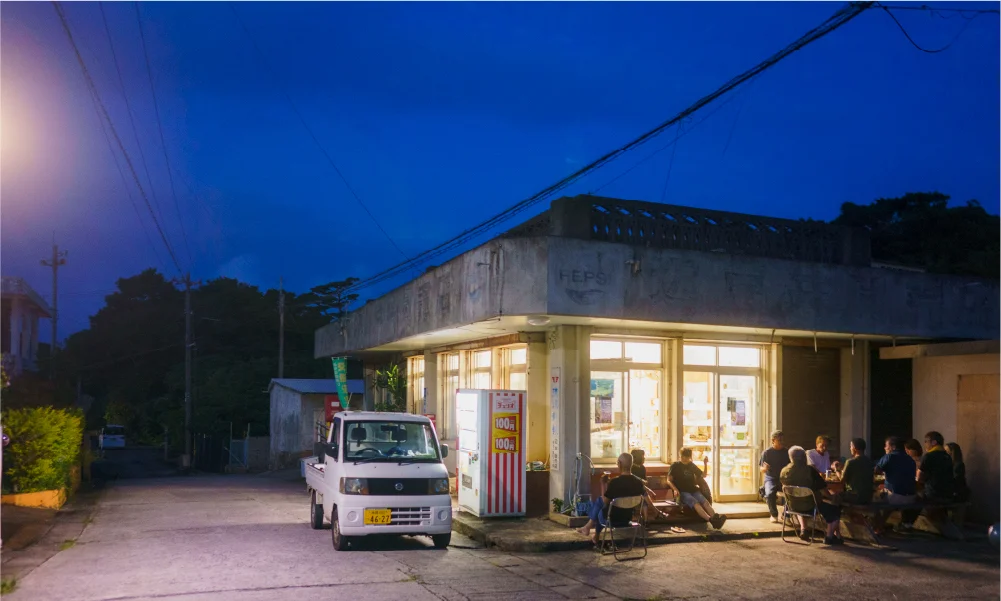
Articles #01 Food
Journey through Yambaru:
Where Life Rejoices
Food Culture Unites People and Nature
The act of eating connects us to nature and strengthens bonds between people. In Yambaru, the northern region of Okinawa, such food culture is still deeply rooted in the local life. In Hedo village, home to about 40 residents, the community is supported by its sole store, the Hedo Cooperative Store.
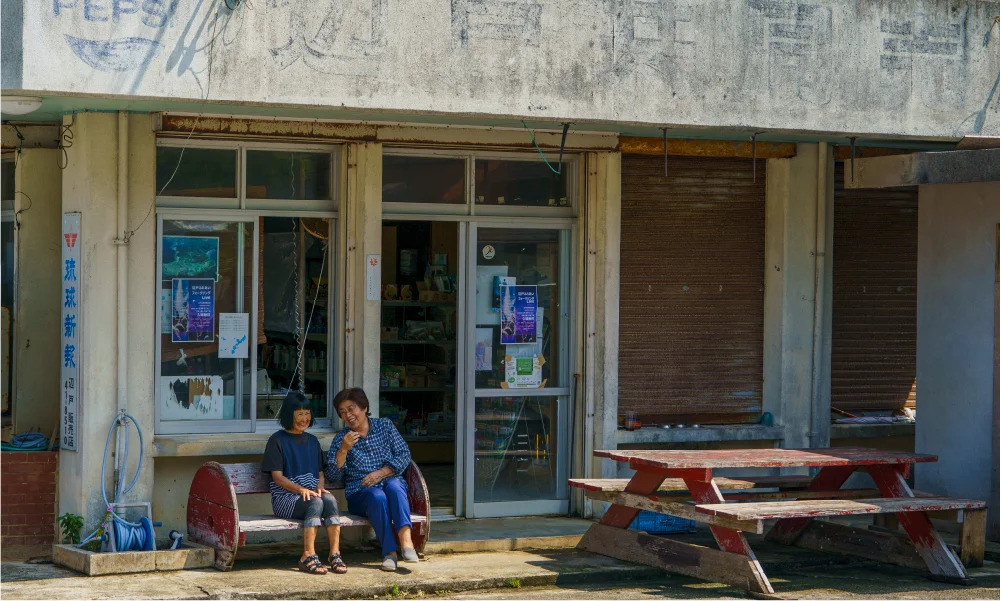
The store operates from 8:00 a.m. to 12:00 p.m. and reopens from 5:00 p.m. to 7:30 p.m. Villagers stop by for coffee or cigarettes before work, and for drinks afterward. There are benches and picnic tables next to the store where locals gather as a routine, enjoying beers fresh from the store’s fridge. It’s said that the store reopens in the evening just for this daily social gathering.
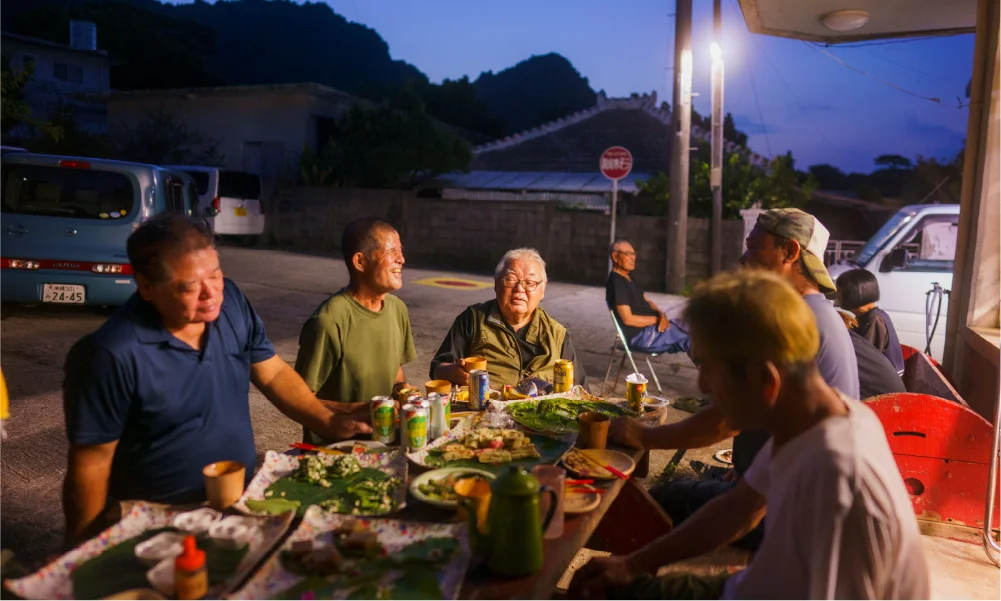
Hifumi Kinjo, who runs the cooperative store, reflects on the unique flow of time in this store:
"The store is watched over by Asumui, the village’s guardian deity—a sacred mountain revered as a holy site, and here, the air is pure. The people who gather here have known each other since childhood and we see each other every day, so there’s no need to hide anything. You can’t wear a mask here. Everyone lives freely, in the spirit of ‘Shiibusakattii’ (meaning ‘living as you please’)."
The store’s best-sellers include bread, milk, ice cream, Ramen, Soba, and frozen meat. Vegetables, however, are rarely stocked, as villagers cultivate their own in their fields and exchange them with one another.
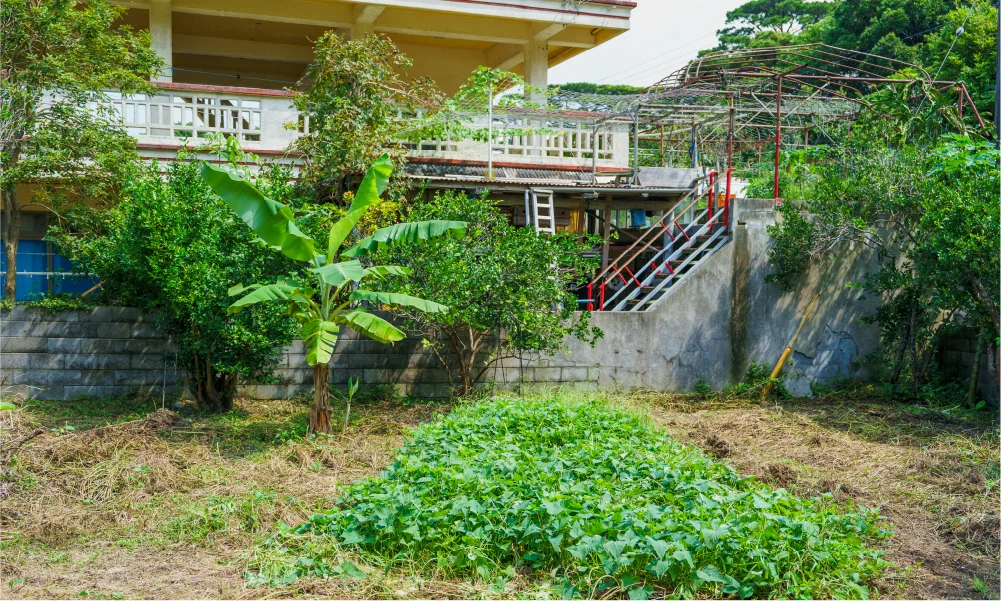
“Everyone in the village has a field and cultivates something. If you give your friend some dragon fruits from your garden, they might turn them into smoothies and give it back to you. Bananas grow everywhere here. Our dining tables are always filled with seasonal products and shared gifts," says Kinjo.
The people of Hedo have the wisdom and lifestyle of directly receiving nature's blessings and sharing it with others. Katsue Sakuma, known by her childhood nickname “Kakkaa,” is one of the shining examples of this spirit.

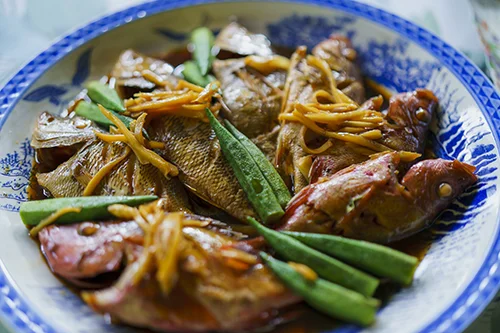
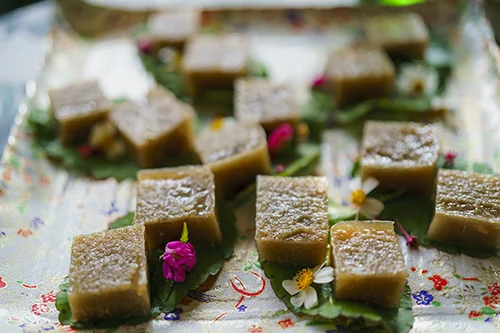
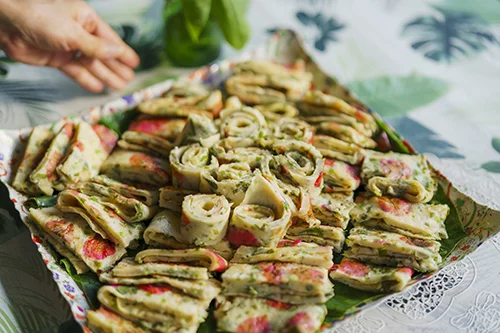
Sakuma is a herbal tea blender crafting delicious teas from the leaves and bark of the "Karaki" (Okinawan cinnamon) tree. She also runs a small restaurant only for reserved guests. Her dishes feature unique local ingredients, such as wild herbs, which she prepares simply to enhance their full flavor, whether in Hirayachi (Okinawan savory pancakes) or Tofu salads.
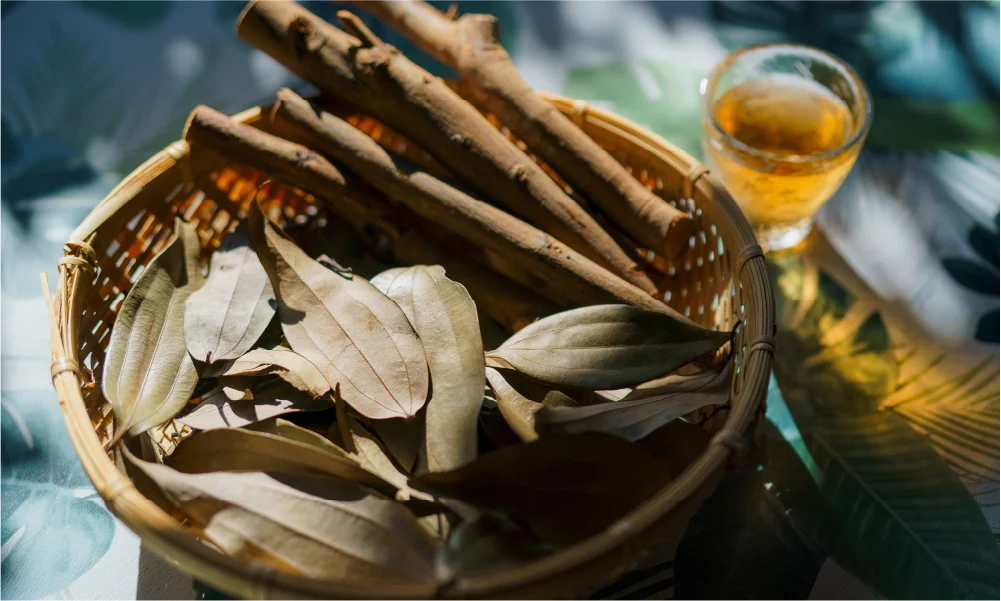
"Since childhood, I’ve always known which plants around us are edible. Long-stamen chives were a favorite find on my walks to and from school, and my parents loved them. The root bark of the Karaki tree is sweet and spicy so I used to give them to my children as a snack. I also gather Njana (a type of bitter green commonly found in Okinawa) by climbing the rocks near the sea. The drier ones that grow on the rocks are high in bitterness, making them delicious even without adding salt," says Sakuma.
Nourished by the bounty of the surrounding nature, they share blessings with childhood friends—who still call each other by their childhood names even in their 60s. In this spirit of sharing food and abundance lies the secret to true well-being.
